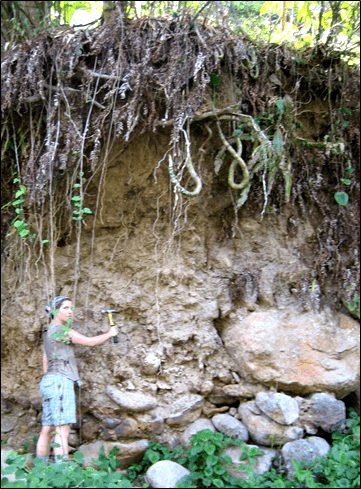Lecture: Creating the critical zone: dissolving, fracturing, and eating rocks
Speaker:
Entry Fee
Members: Free
Visitors: £5.00
Date and Time
19:30 -
Location
Bath Royal Literary and Scientific Institution, 16-18 Queen Square, Bath BA1 2HN
Lecture Description
 The critical zone is the region of terrestrial Earth extending from the treetops to where rock begins to weather. It’s critical because it provides many essentials that we need to survive on this planet - energy, nutrients, food, groundwater; it also mediates the release of toxins to the biosphere, controls water runoff and infiltration, affects the concentrations of greenhouse gases in the atmosphere, and generates dust and sediments. The creation of the critical zone from solid rock is a complex but fascinating set of interlinked processes of chemical reactions, physical transport, fracturing, and metabolism.
The critical zone is the region of terrestrial Earth extending from the treetops to where rock begins to weather. It’s critical because it provides many essentials that we need to survive on this planet - energy, nutrients, food, groundwater; it also mediates the release of toxins to the biosphere, controls water runoff and infiltration, affects the concentrations of greenhouse gases in the atmosphere, and generates dust and sediments. The creation of the critical zone from solid rock is a complex but fascinating set of interlinked processes of chemical reactions, physical transport, fracturing, and metabolism.
The feedbacks amongst these very different processes determine many of the characteristics of the critical zone, such as the shape of it, the depth of it, how fast it evolves, and the fertility of it. Because the critical zone is so critical, it’s essential that we are able to preserve (or restore) its functions in the face of global and local environmental change. To do that, we need to understand exactly how these feedbacks work so that we can make accurate predictions of the consequences of environmental change as well as of our interventions. In this talk, I will discuss how these different processes are interlinked with a case study of spheroidal weathering in a tropical granitic rock, with extension to other lithologies and climate zones globally.
